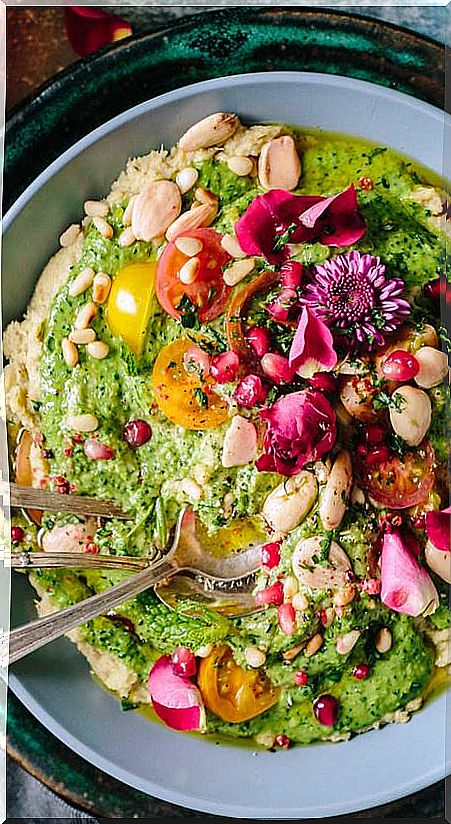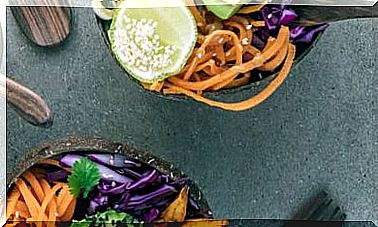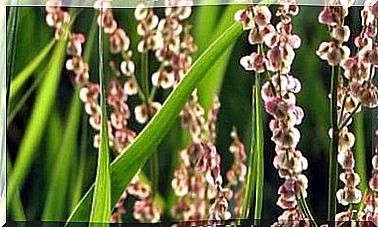Take The Opportunity To Do A Vegan Week
If you have not yet taken the step towards a 100% vegetable diet, confinement is an opportunity. You have time to plan the menus and prepare the dishes. We explain how to do it.

During the first days of confinement to stop the expansion of Covid19, for some reason the meat flies from supermarkets first thing in the morning. It probably accumulates in private freezers in anticipation of a supposed shortage. For a vegan it will not be a problem and if you have ever considered adopting this food and vital option, this may be the best time.
4 reasons to go vegan
1. Prevent new epidemics
If you think about it, what has happened with Covid19 is related to the omnivorous food model. As you know, the virus passed from a bat to another animal and from this to a human being. This transfer could have occurred in the so-called wet or seafood markets of a Chinese city, where captured wild animals and other species coexist.
Another reason that coronavirus outbreaks are becoming more frequent is because extensive crops, in many cases of forage plants, invade the ecosystems where the animals that carry them live. These flee to inhabited areas or are captured by people who consume them and thus come into contact with human populations.
2. Respect animals
So far, the main reason to go vegan is extreme respect for animal rights. Vegans do not believe that human beings need to sacrifice other living beings for food or that they have the right to confine them, forcing them to live in a different way than they would in freedom.
3. It is more sustainable
Another reason is that the plant-based diet is more ecologically sustainable, because it consumes fewer natural and energy resources. Industrialized livestock causes almost as many carbon dioxide emissions as all automobiles in the world, given the vast amount of land that must be cultivated to feed livestock. It is also responsible for the release into the atmosphere of a lot of methane (another greenhouse gas) and for deforestation. 70% of the Amazon rainforest that disappears becomes feed crops.
4. It is healthier
The third reason is health. Paradoxically, the main criticism of veganism is that it is not a healthy diet. “Where do you get protein? And vitamin B12? Don’t you have anemia?” Practitioners are asked.
Everyone should be concerned about balance in their diet, not just vegans. By eating meat you are not free from deficiencies or excesses, as is the case with fast food fans. A vegan who respects some basic rules can obtain all the necessary nutrients and is freed from the risks associated with foods of animal origin.
In fact, there is a consensus among doctors and nutritionists that the bulk of the population would benefit from substituting at least a part of animal proteins for plant alternatives such as legumes.
In the medium term, the vegan diet reduces blood pressure, cholesterol and blood sugar level. It is also associated with weight loss (in obesity) and a lower risk of cardiovascular disease and certain cancers.
Vegans have no problem with protein
Let’s start with the so-called protein problem. These are not only found in meat and fish, but in most foods: in legumes, cereals, nuts, seeds, potatoes and even fruits.
They can be found in different proportions in each food, but what matters is the sum, and studies – such as the so-called EPIC-Oxford – indicate that most vegans get the protein they need.
Eat vegan and healthy for a week
To carry out a vegan week with guarantees, it is advisable to follow some guidelines on the foods that are consumed, respecting the variety and number of servings.
• Whole grains such as rice, oats, pasta and wheat and rye breads, corn, quinoa or millet provide slow-absorbing carbohydrates, protein and fiber, as well as B vitamins, minerals and substances beneficial vegetables.
It is necessary to consume between 5 and 10 daily servings of this group, taking into account that a slice of bread, 120 g of cooked cereals or 30 g of dry cereal constitute a portion.
• Legumes and their derivatives are essential sources of protein, although they also provide carbohydrates, fiber, iron, calcium, zinc, B vitamins and antioxidant compounds.
Chickpeas, lentils, soybeans (especially their derivatives: milk, tofu and tempeh), beans, beans and azukis, etc. they must be present in the form of 2 or 3 servings per day. Some examples of serving are: 120 g of tofu, 2 glasses of soy drink or 100 g of cooked lentils.
• Vegetables such as spinach, carrots, tomatoes, broccoli and many others are rich in minerals, vitamins, fiber and plant compounds that support the immune system.
Cabbages are especially recommended (they contain anticancer substances), green leafy vegetables (they are rich in folic acid, calcium and magnesium), and yellow and orange vegetables (they are abundant in beta-carotene, which is transformed into vitamin A).
From this group, it is advisable to consume a minimum of 4 servings (2 raw and 2 cooked). Some examples are: half a plate of lettuce, 50 g of raw red pepper, 80 g of cooked green beans or a glass of vegetable juice.
• Fruits provide vitamin C, carbohydrates, fiber, minerals and phytochemical compounds with a general protective effect.
A minimum of 3 daily servings of apples, oranges, bananas, mangoes, kiwis or strawberries should be consumed (a serving is a piece or an amount that fills the palm of the hand).
Whole fruit is always preferable to juice because fiber and beneficial chemicals are not wasted. The fruit can also be eaten dried (a handful equals one serving) for extra doses of minerals and vitamins.
• Nuts and seeds are recommended in any diet, but vegans tend to consume them in greater quantities, as they are complementary sources of amino acids, minerals (calcium and iron) and fatty acids.
Almonds, cashews, hazelnuts, pine nuts, walnuts and flax seeds, sesame, pumpkin, chia, sacha inchi and sunflower are especially recommended.
Experts recommend vegans consume 2 servings a day. Examples are two tablespoons of flax seeds or tahini (pasta made with sesame seeds), 6 walnuts or a handful of hazelnuts.
The fat contribution of nuts and seeds can be complemented with olive oil and other vegetable oils such as hazelnut, soybean, sesame, walnut or grape seed. Two daily tablespoons of raw extra virgin olive oil are essential for dressing salads and vegetables.
It is also advisable to consume a teaspoon of flax oil (it can be mixed with olive oil, as long as you are not going to cook it) for its contribution of omega-3 fatty acids.
How are you going to feel?
If you follow the above guidelines, you will not have any deficiencies. You will only need to take a weekly vitamin B12 supplement that you can get at any pharmacy. In Lucía Martínez’s article, Vitamin B12: what all vegans should know, you will find all the information you need.
You will not suffer any type of fatigue, or cleansing crisis. Some people who are not used to consuming legumes or nuts may experience some digestive discomfort that disappears over time.
To avoid these discomforts, you can take the legumes in pureed form. If the discomfort continues, there is a possibility that you have added a new plant food to your diet that you are allergic or intolerant to. Try to discover what it is and dispense with it (there are no mandatory foods, although we must eat foods from all groups).
Of course, you will experience the pleasure of eating as you have been doing or more because plant foods, flavored with spices, provide an infinite range of aromas. Do not be obsessed with the fact that vegan foods that are presented as alternatives to meat will provide you with the same experience. Although some are very successful, such as Heura or Beyond Meat, cow cheese, meat, fish or eggs have unique aromas and textures. But they are also unique plant foods that vegans consume regularly and that omnivores often miss:
- Tofu: with different degrees of texture, it adapts to different preparations. It provides proteins, calcium and vitamins of group B.
- Tempeh: it is a fermented product made with soybeans or chickpeas. In many recipes it is used as an alternative to meat.
- Vegetable milks: soy, oatmeal, rice or spelled … They offer alternatives for all kinds of preparations, including cream.
- Seitan: made with wheat gluten, it has 25% protein and a texture similar to meat. It cooks the same.
- Seaweed: in small doses they provide flavor and minerals, especially iodine, which is not found in other vegetables.
- Quinoa: it has an optimal profile of amino acids, in addition to iron and calcium in abundance.
- Sprouts: it is a way of consuming seeds with a nutritional plus, since their vitamins are multiplied.
Some ideas for making menus
The following suggestions can help you plan a varied and balanced vegan diet:
- Breakfasts: Two slices of whole wheat bread with oil and tomato / Orange and soy yogurt with raisins / Muesli with almonds, dried fruit and rice milk.
- Snacks: A soy yogurt with a tablespoon of flax seeds / An apple / Whole wheat crackers spread with tahini or sesame paste.
- Meals: Salad with nuts, raisins and sesame / Lentils with potatoes, carrots and seitan / Whole wheat paella with vegetables.
- Snacks: Orange juice with a handful of cashews / Slice of bread with cocoa cream and nuts / Nuts and dried fruit.
- Dinners: Polenta with mushrooms / Quinoa or couscous with chickpeas / Broccoli with garlic and olive oil / Hummus with homemade vegetable meatballs.









